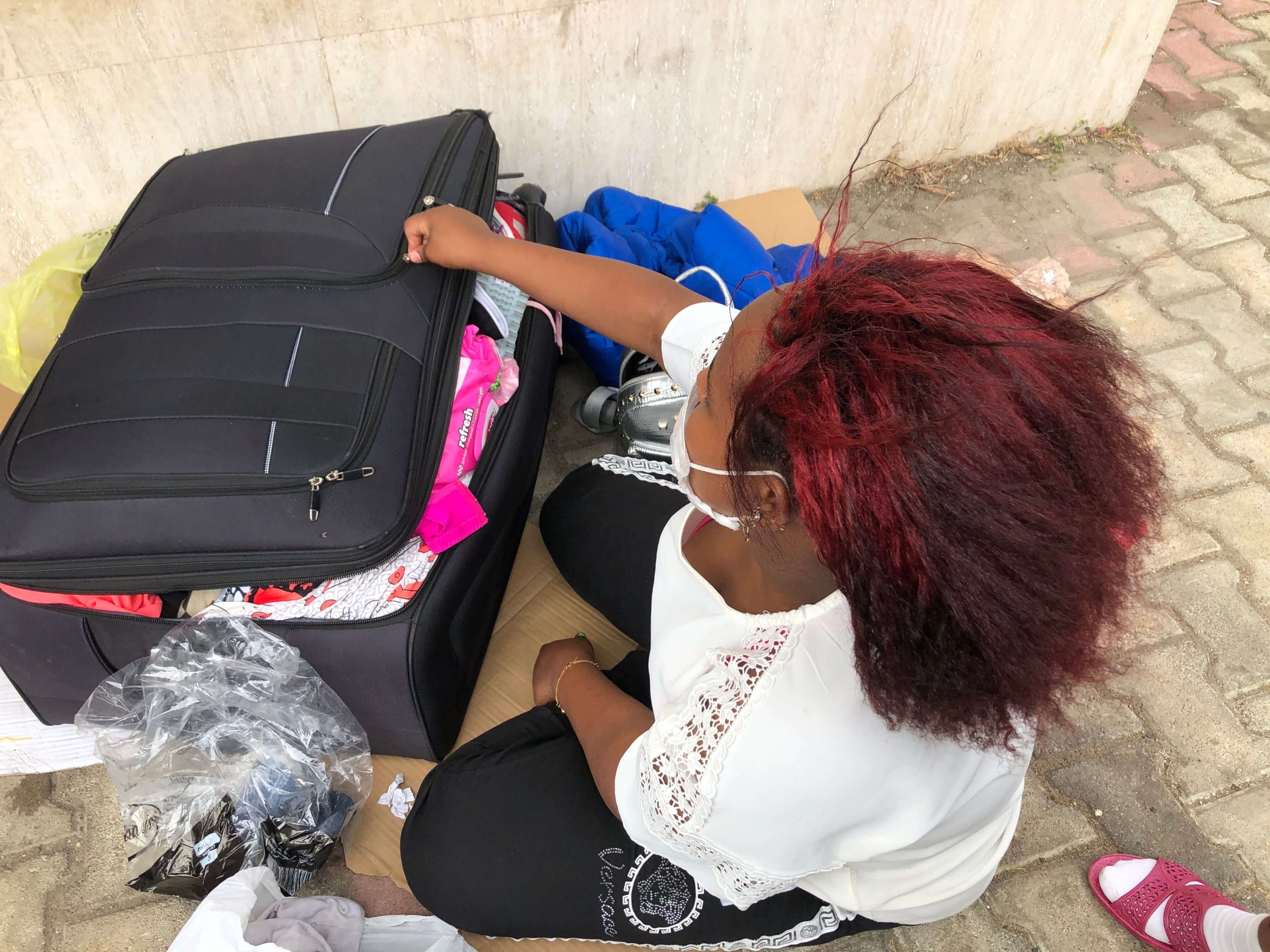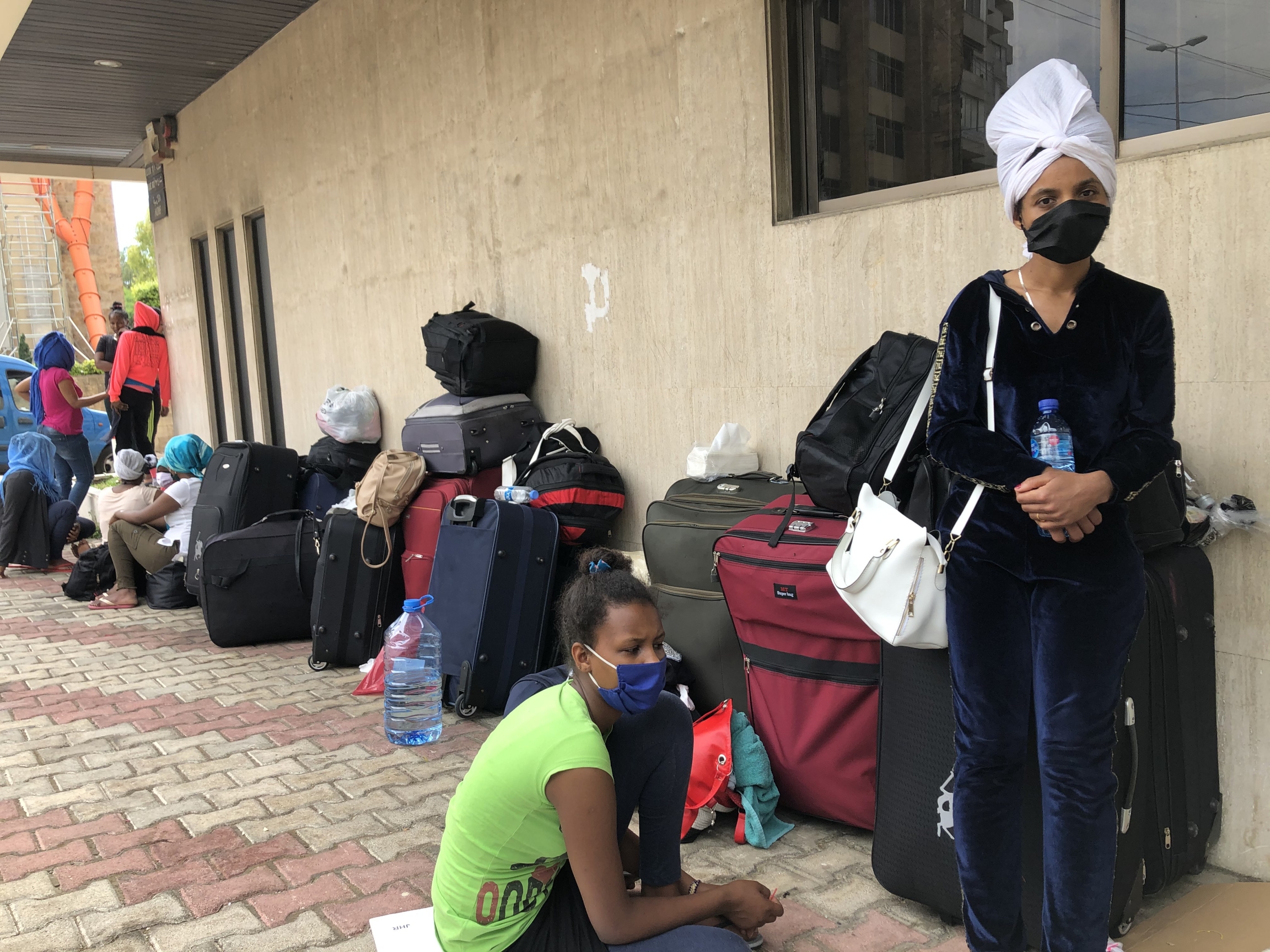'American exceptionalism': EU travel bans show US is abdicating global leadership, former CDC head says
The European Union is set to reopen its borders starting July 1. Right now, the bloc is still deciding who it wants to let in, and it does not look like people from the US will be among them.
June 26, 2020 · By The World staff Producer Christopher Woolf
As countries around the globe start to reopen, the big question is how to do it safely.
The European Union is set to reopen its borders starting July 1. Visitors from the US and Russia are among those that are restricted from entering Europe, The New York Times reported on Friday.
Earlier reporting this week from The New York Times that alluded to that prompted Dr. Tom Frieden, the former head of the Centers for Disease Control and Prevention, to tweet, "This is not what American exceptionalism is supposed to mean."
This is not what American exceptionalism is supposed to mean. Until the US gets control of this virus, we will face barriers to travel and economic recovery. https://t.co/et7Dn7tdcC— Dr. Tom Frieden (@DrTomFrieden) June 23, 2020
Frieden headed the CDC from 2009 to 2017. He's now president and CEO of Resolve to Save Lives, which focuses on preventing deaths from cardiovascular disease in low- and middle-income countries. Frieden joined The World's host Marco Werman from New York to talk about the Trump administration's handling of the pandemic.
Marco Werman: Dr. Frieden, an interesting way to frame American exceptionalism. What did you mean in your tweet when you said that this is not what that's supposed to mean?
Tom Frieden: Well, there's debate about what American exceptionalism is and different visions of it. But it was never supposed to mean that we continue to have tens of thousands of cases of COVID-19 disease every single day while Europe has essentially beaten the curve, and countries around the world are doing much better than we are. The key point here is that it's not a question of health versus economics. The only way we're going to get our economy back is to be guided by and fully support public health, so we can keep COVID-19 in its place and we can have more space in society.
What do you make of the fact that this list puts the US in the same company as Russia and Brazil? Does that mean the US, Brazil and Russia, we're all at the bottom of the barrel?
There are a lot of countries that aren't doing a good job, and there are a fair number of countries that are doing a really good job. I think the key is for us to continuously improve our response. We have great health departments around the country. We have very committed public health professionals. Congress has provided substantial resources. Now, we need to scale up our programs and show that we, too, can turn the tide and make huge progress against this pandemic.
In parts of this country, we've done it. If you look at New York, New Jersey, many other places in the US, we have seen a huge decrease in cases. Now, we have to keep that up so we don't have large spikes. We know there are going to be clusters. That's inevitable. That's why we need really good public health systems to find those clusters early and stop them before they become outbreaks. That's what has to happen for us to be safer and for us to get our economy back.
When you speak with colleagues overseas dealing with the pandemic, what do they say about how the US has handled the crisis?
I get emails and text messages from all over the world just kind of shaking their head. What is happening? Why has the US response been so ineffective? Why isn't contact tracing scaled up? Why in the world has mask-wearing become a political statement in some places and for some people? I would say there's a kind of sadness and disbelief when people look at what's happening in the US now.
The US has for decades been a leader in global health. And now it's seen — unfortunately, accurately — as a laggard. I point out the need for federal leadership. I point out that public health has not failed in this pandemic. What has failed is the politicians' willingness to listen to public health advice and be guided by and support public health, because everywhere in the world where that is done, their communities do better. Fewer deaths and less economic destruction and devastation.
How do you think the US handling of the pandemic is changing the way this country is seen around the world?
Well, I think it's done a lot of damage to our reputation as a leader, to our reputation as a country that could not only handle things here, but be relied on globally. When I think back to Ebola, the US led the global charge to protect the countries of West Africa and stop the epidemic there successfully. Now, the US is really not in that role.
Saying that we're going to leave WHO in the middle of a pandemic is not a sensible thing to do. Certainly, WHO needs to be better, but they're essential. And turning our backs on them is not going to help at this time. The US has a wonderful history of pragmatic, effective public health and political leadership. And if we get back to that, we can control this pandemic and the next one that comes along as well.
I mean, you look at China, they recently had a cluster of more than 150 new COVID cases in Beijing. Officials sealed off neighborhoods, they launched a mass testing campaign, imposed travel restrictions. In the meantime, here in the US, we're getting reports that President Donald Trump wants to close 13 federally run testing centers just as infections are spiking in several states. Again, maybe the answer is obvious, but how does the US emerge from this and get on the list of responsible countries?
If we do the right thing, we'll get on the right list. I got an email this morning from a colleague in Australia. Incredibly impressive. They've got a cluster. They're ramping up testing. They're doing very intensive work. And really, the tale of two countries is the United States and South Korea. We've both had our first cases on Jan. 20.
If you had moved from the US to South Korea on that date, you would have been 70 times less likely to get killed by COVID-19. And these days, Korea is having 30 cases a day and they're really concerned about it. They're ramping up their efforts to clamp down on the virus. We have 30,000 cases, and there's still debate about whether people should wear masks. It's a little mind-boggling.
This interview has been edited and condensed for clarity.












